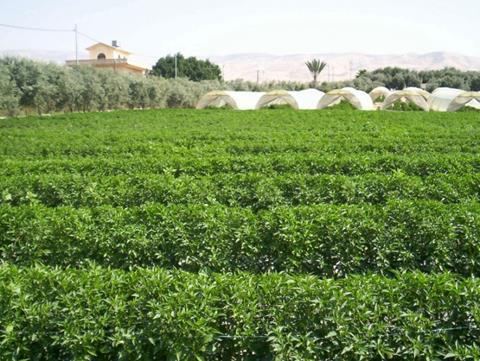The Jordanian water ministry has signed a deal with the FAO to launch the Water Scarcity Initiative to secure its water resources
Jordan’s minister of water and irrigation, Raed Abu Saud, signed an agreement last month with the Food and Agriculture Organisation (FAO) to launch the Water Scarcity Initiative in the Near East and North Africa (NENA) region.
Abu Saud said the initiative offered an important opportunity to “enhance water resource planning, strengthen knowledge-sharing and promote sustainable water use in agriculture”, according to a report in Ammon News.

Through the initiative, he said, Jordan would implement integrated water management practices, enhance water governance and improve the resilience of water services.
These efforts fit with the country’s broader goals of “ensuring water security, introducing modern irrigation techniques and addressing the impact of climate change while fostering regional cooperation to sustain water resources”.
FAO’s representative, Nabil Assaf, highlighted the importance of this partnership in tackling water scarcity in the area. “By working together, we can create a more sustainable and resilient future for the people of Jordan,” he said.
The goal of the Water Scarcity Initiative is to support strategic water management planning, promote the use of unconventional water resources and facilitate knowledge sharing. The initiative includes 17 outputs, 15 of which Jordan is reportedly actively participating in, with a total value of $31.5mn.
The progress made by Jordan has been significant, according to reports, with the country managing to lower its water consumption for farming to 51 per cent of available water resources, compared with an international average of 85 per cent.
The country’s 14 dams, which have a total capacity of 280mn cubic metres, are currently at around 25 per cent of capacity, while the majority of the country’s groundwater basins are severely depleted. The Aqaba-Amman water desalination and transport project, which will provide 300mn cubic metres of desalinated water per year, is expected to be operational in 2027.



